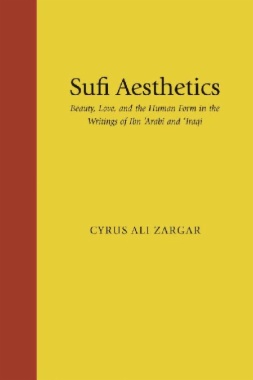

Sufi Aesthetics argues that the interpretive keys to erotic Sufi poems and their medieval commentaries lie in understanding a unique perceptual experience. Using careful analysis of primary texts, Cyrus Ali Zargar explores the theoretical and poetic pronouncements of two major Muslim mystics, Muhyi al-Din ibn al-'Arabi (d. 1240) and Fakhr al-Din 'Iraqi (d. 1289), under the premise that behind any literary tradition exist organic aesthetic values. The complex assertions of these Sufis appear not as abstract theory, but as a way of seeing all things, including the sensory world.
The Sufi masters, Zargar asserts, shared an aesthetic vision quite different from those who have often studied them. Sufism's foremost theoretician, Ibn 'Arabi, is presented from a neglected perspective as a poet, aesthete, and lover of the human form. Ibn 'Arabi in fact proclaimed a view of human beauty markedly similar to that of many mystics from a Persian contemplative school of thought, the "School of Passionate Love," which would later find its epitome in 'Iraqi, one of Persian literature's most celebrated poet-saints. Through this aesthetic approach, this comparative study overturns assumptions made not only about Sufism and classical Arabic and Persian poetry, but also other uses of erotic imagery in Muslim approaches to sexuality, the human body, and the paradise of the afterlife described in the Qur'an.